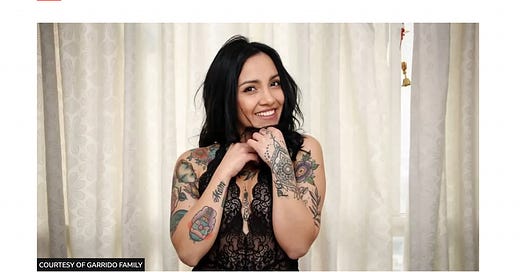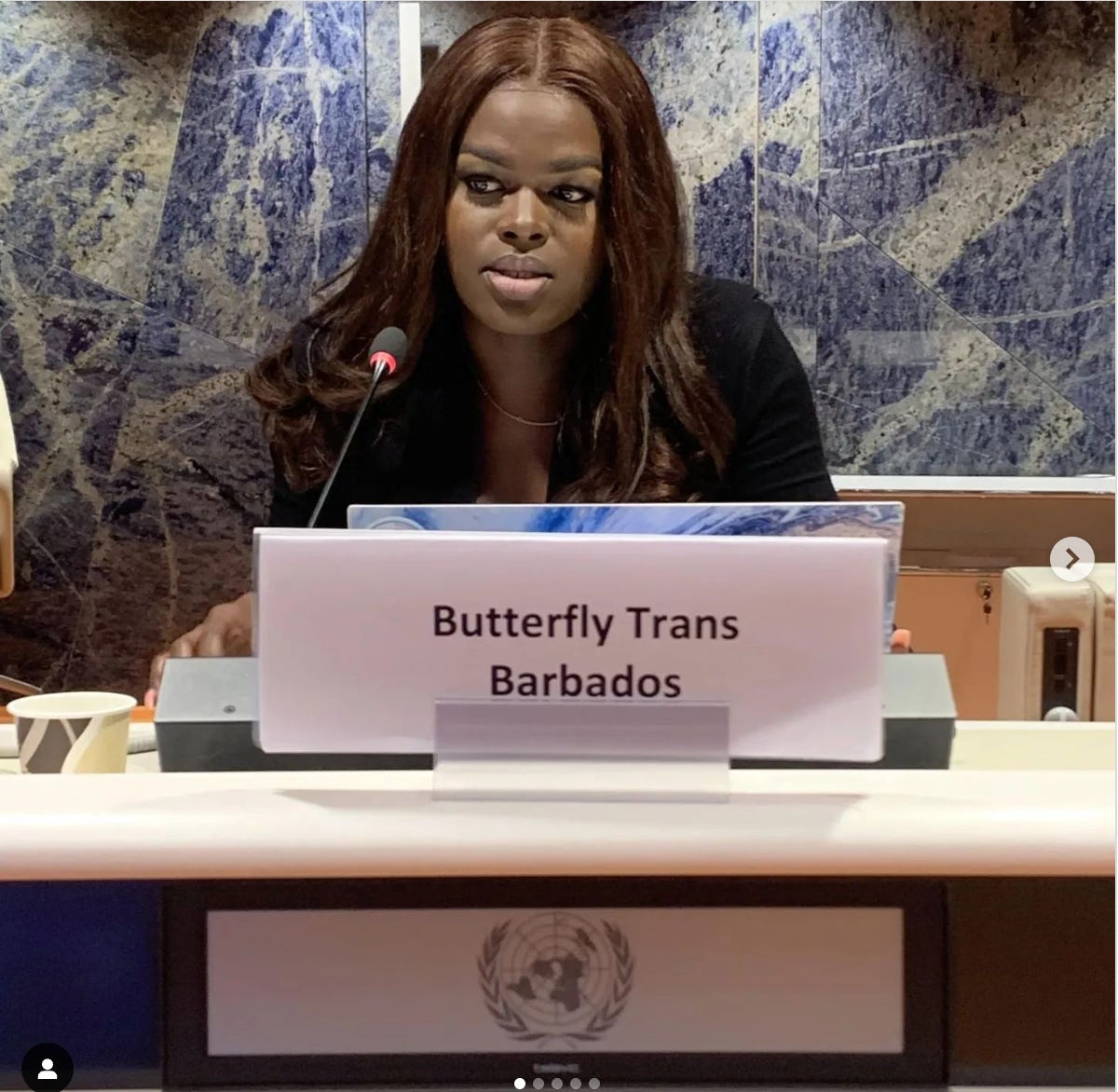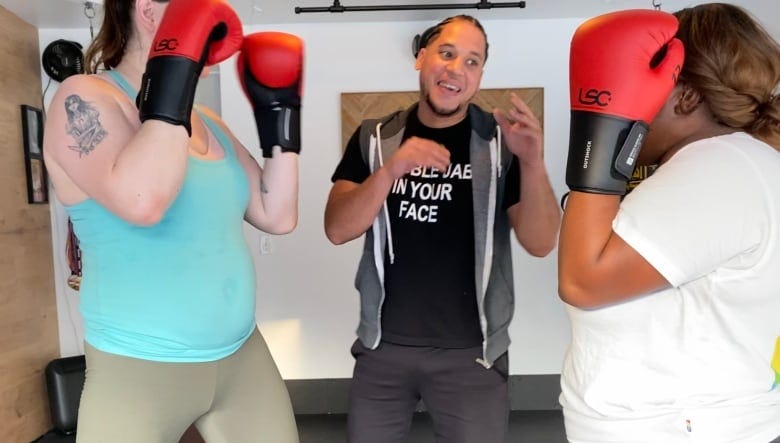Global Roundup: Chile New Law for Femicide Victims, Barbados LGBTQ+ Rights, Black Queer Creative Collective, Los Angeles Queer Gathering Place, Sex Worker Self-Defence Class
Curated by FG Contributor Samiha Hossain
Silvana Garrido
Silvana Garrido’s family were immediately suspicious when they were told that she had died by suicide. Her loved ones believed it was a femicide perpetrated by her partner.
Francisca Millán Zapata of AML Women's Defence, who represented Garrido's family in court, says that the police and prosecutors did not take the concerns of Garrido's family and friends seriously, instead opting to believe the version of events put forward by the victim's ex-partner, Fernando Flores. The family had to "fight ruthlessly" for four years to achieve justice, but in April 2023, Fernando Flores was found guilty of pushing her to her death from her 23rd-floor apartment. He was sentenced to life in prison. Not only did he get a tougher sentence because the murder was ruled a femicide, but under the new law, Garrido's daughter will qualify for financial support.
Chile's Minister of Women and Gender Equity, Antonia Orellana, says that the law was brought in to lend support to children whose mothers have been killed by their partners, leaving the child with no mother and a violent father behind bars. Orellana says the aim is to go further than just providing financial aid – and to recognise violence as a structural problem. According to her, the core focus of the law is to protect children's wellbeing and to break the cycle of violence, which can see children of aggressors turn into violent adults.
The most effective measure in the long-term is avoiding the intergenerational transmission of violence. -Antonia Orellana
Orellana hopes that lawmakers will also pass a bill aimed at preventing femicides and abuse. The Right For A Life Without Violence law, which is backed by the Ministry of Women, seeks to strengthen the institutional support offered to women to help them escape violent circumstances. She believes that the number of femicides can be reduced, but in her view gender-based violence is a global challenge – not restricted to Latin America.
Raven Gill Via @ButterflyBarbados
Barbados removed Queen Elizabeth II as its head of state and became a republic in November 2021 – it was a defining moment where Barbados could begin to examine its stance on LGBTQ+ rights. A year after independence, the country’s top court struck down colonial-era laws criminalising homosexuality, though it continues to lack legal gender recognition for trans people and protections for trans people from discrimination in some circumstances.
Raven Gill – founder and executive director of the country’s only trans-led and focused civil society organisation, Butterfly Barbados – was among the litigants who brought the legal case to overturn the “buggery” and “indeceny” laws. She says she wasn’t the “most prominent one on the docket”, but because she’s a trans woman, she was used to “sensationalise the story” in the media.
I received death threats from people in America. I received random phone calls in the middle of the night, and I don’t know how people got my number – [in] Barbados, privacy is a joke, confidentiality is a joke. -Raven Gill
Gill discusses the struggles of living as a trans person in Barbados. Trans people risk “discrimination, harassment and bullying” and things like opening a bank account and travelling can be a hazard. While many in Barbados are hopeful of further legislative change – prime minister Mia Mottley is considered an LGBTQ+ ally – Gill says this won’t ultimately change the “minds of the masses”.
There need to be a better education campaign to sensitise the wider public, those who are anti-LGBT or those who don’t have much interaction within the community but are willing to learn, because awful ignorance will always drown out our voices and what we are actually advocating for truthfully. -Raven Gill
Zi Donnya Piggott has been an LGBTQ+ advocate for a long time in Barbados. He says the situation “might look bleak” but believes the island has done “very, very well” on growing an environment where queer people can thrive. Piggott says constitutional reform is a “very tough job”, and they’ve even submitted a paper that will hopefully influence how the government creates a new, inclusive constitution.
The law, the major anti-gay buggery law being struck down, having some kind of protections in the workplace and the government placing an LGBT representative at the table at the social justice committee are all little small steps that I think are worth celebrating. -Zi Donnya Piggott
Jesualdo Lopes | The Blacker The Berry
The Blacker The Berry (TBTB) is a creative collective aiming to uplift and highlight the artistic work of Black queer, Black trans and Black nonbinary people. Operating between Lisbon and Leeds, the collective hosts events such as exhibitions, club nights, workshops and talks, and has a zine where emerging Black talent has the opportunity to showcase artwork through distinctive mediums. Bissau-Guinean filmmaker Jesualdo Lopes (Jesu) set up the collective.
Like many others within the global majority, Jesu felt he was often expected to educate white people about his community’s socio-political history. The murder of George Floyd in 2020 made him feel invisible because racism and police brutality had gone unaddressed for so long. At the same time, as a queer person, he felt there was insufficient acknowledgement of the many queer lives lost prematurely every year.
I want to bring everyone along by prioritising the artistry of Black LGBTQ+ people. To create some intersectionality between the Black community in general, where we can coexist – because, at the end of the day, Black lives matter in unison. Black, straight, cis: every Black life matters. -Jesu
The project hasn’t been plain sailing – securing funding has been particularly challenging. But Jesu says giving people the opportunity to showcase their work is crucial, because many might not have the confidence to do so in other settings, or might think their work isn’t developed enough. The response, he says, has surpassed his expectations and left him feeling like a proud father.
I love conceptualising zines because I have met so many people who have become some of my best friends, as well as other artists within our community and beyond, from Nigeria and Ghana to Jamaica and Barbados. That’s what brings me the most joy. -Jesu
The zines Jesu curated told different stories and touched the public differently too. There were three editions, all sold out, each with a different theme. The first one focused on presenting the collective and its upcoming work and included a list of recommended films and Black-owned businesses in Portugal and the north of England. The second highlighted solely African, Caribbean and Latin American talent, providing a platform for those living in countries with less meaning/artistic opportunities compared to their European counterparts. The third featured femme and nonbinary creatives from Lusophone African countries, such as Angola, Cape Verde, Guinea-Bissau, Mozambique and São Tomé and Príncipe. Each impacted these artists as it was the first time that most had had their work published.
TBTB was the first project in Portugal to introduce a safer space policy and seeing the domino effect throughout the country was bewildering. Because every venue, event or space now submits a safer space policy or manifesto…If I can do it – a Black, working-class, first-generation Bissau-Guinean – then surely all these institutional organisations can do it too? In fact, they could have done it way before me. -Jesu
Photographs by DANIEL JACK LYONS
Where We Are is a visual series in the New York Times about young people coming of age and the spaces where they create community. One such space is the Vista Hermosa Natural Park located to the west of Downtown Los Angeles.
The park has always been a space of community, peppered with picnic areas, a playground and an amphitheater. But during the pandemic, when so many other gathering places were closed, its power came into focus for Rory, who is nonbinary and uses they/them pronouns, and the other queer and trans young adults in their cohort. Rory moved to California not long before the start of the pandemic from Arizona, where they didn’t feel like they had much of a community. Meeting at the park was therapeutic for the group, allowing them to express themselves and learn from one another in a safe, intimate space. The tradition has extended beyond the pandemic.
It’s a community that we’ve been looking for and been trying to find and build for ourselves in L.A. for as long as we can remember. Just how affirming and natural and just how seen you feel in a friendship, how deep those connections are. It’s really special. -Alè Bersanetti, 24
The physicality of the park itself nurtures a feeling of safety and community. Its meandering layout allows groups to find isolated areas, said Daniel Jack Lyons, the photographer for this story.
As the identity, health and freedom of queer people is threatened, the park goers say, it is more important than ever to be able to meet in a public space that doesn’t draw a lot of unwanted attention and where you can feel fully yourself.
Sometimes you want to be self-expressive. I have a lot of trans friends who are afraid to be in public, and when we’re all together I feel like there’s a sense of safety. You can’t leave your identity at the door because it’s always with you, but I just feel like it doesn’t matter when you’re with the people that care for you and understand you. -Rory
The park is a proving ground for that future: a meeting space, a community-building space, a space for artistic creation.
The ask for self-defence classes came from sex workers themselves, who are at risk of harassment and violence on the job. (Sarah MacMillan/CBC)
At a small boxing gym in Toronto, Canada, all participants are sex workers there to learn self-defence. The classes are organized by the Maggie's Toronto Sex Workers Action Project, in response to an uptick in members reporting incidents of violence and harassment. Maggie's executive director Ellie Ade Kur said the ask for self-defence classes came directly from members.
One of the things we hear a lot from sex workers is the issue around facing direct violence. Often not being able to necessarily defend or report that violence or be taken seriously. -Ade Kur
The classes began in March, and will run until the end of June. All 30 spots were filled within 24 hours, and within a week there were another 50 on the waitlist.
For Alexia Woodroe, the biggest takeaway from the classes has been confidence.
The confidence in certain moves, the confidence in how I walk, the confidence in that if something were to happen, I have some idea of what to do, if at least just to get out of the situation. -Alexia Woodroe
Ade Kur said the social connections formed during classes are a big part of why she views the program as such a success. While the classes for this cohort are set to wrap up at the end of June, she hopes to be able to offer more classes in the future, if the group is able to secure funding.
The violence that sex workers face in community because of criminalization and stigma is jarring and absolutely heartbreaking. But I also think on the flip side … it's important to also focus on the fact that there are people that are working to change that, that are working to build community and directly address that. Even in the absence of policy makers addressing the issue of criminalization. -Ade Kur
Samiha Hossain (she/her) is a student at the University of Ottawa. She has experience working with survivors of sexual violence in her community, as well as conducting research on gender-based violence. A lot of her time is spent learning about and critically engaging with intersectional feminism, transformative justice and disability justice.
Samiha firmly believes in the power of connecting with people and listening to their stories to create solidarity and heal as a community. She refuses to let anyone thwart her imagination when it comes to envisioning a radically different future full of care webs, nurturance and collective liberation.








